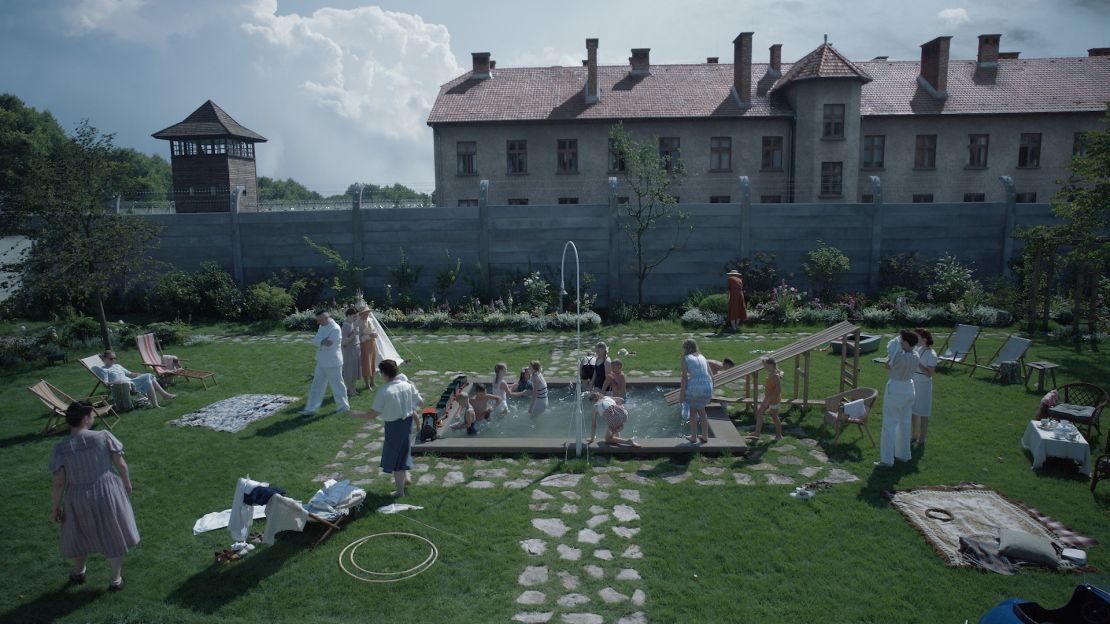There was little mention of politics at Sunday’s Oscars ceremony, but there were multiple calls for global peace.
Upon winning the Academy Award for best international feature for the Auschwitz-set drama “The Zone of Interest,” filmmaker Jonathan Glazer said in his acceptance speech, “Our film shows where dehumanization leads, at its worst.”
Shortly after, Glazer made reference to the ongoing conflict in Gaza, saying, “Right now, we stand here as men who refute their Jewishness and the Holocaust being hijacked by an occupation which has led to conflict for so many innocent people.”
“Whether the victims of October 7 in Israel, or the ongoing attack on Gaza, all the victims of this dehumanization, how do we resist?” he asked.
“The Zone of Interest” tells the story of the commandant of Auschwitz and his family as they enjoy their day-to-day existence in their house, immediately adjacent to the death camp itself. Sounds of suffering can be heard, but nothing from the atrocities being committed are ever shown on screen. The film from the United Kingdom also won the Oscar for best sound on Sunday.

Later in the telecast, director Mstyslav Chernov turned viewers’ attention to another world conflict, in Ukraine.
As Chernov accepted the best feature documentary feature Oscar for “20 Days In Mariupol” (which he pointed out was the first Oscar win in Ukrainian history), he began his speech rather untraditionally, saying, “probably I will be the first director on this stage who will say, ‘I wish I never made this film.’ I wish to be able to exchange this (for) Russia never attacking Ukraine, never occupying our cities.”
After referencing Russia “killing tens of thousands of my fellow Ukrainians” and “all the civilians who are now in their jails,” Chernov said, “I cannot change the history. I cannot change the past. But we, all together, you – some of the most talented people in the world – we can make sure the history record is set straight, and the truth will prevail and that the people of Mariupol and those who have given their lives will never be forgotten.”
“Because cinema forms memories, and memories form history. So thank you all,” Chernov concluded.
“20 Days in Mariupol” follows a team of Ukrainian journalists trapped in the besieged port city as the Russian invasion begins, and their efforts to continue their work documenting the war and its atrocities.

The “In Memoriam” segment of the Oscars ceremony began with a tribute to the late Russian activist Alexey Navalny, whose video message in case of his death was broadcast with the quote, “The only thing necessary for the triumph of evil is for good people to do nothing.”
Navalny – who was the subject of the CNN documentary that won the Oscar for best feature documentary at the 2023 Academy Awards – died last month in a Russian prison.
The drive for peace was also present in certain fashion choices among guests at the Oscars on Sunday, with stars including Billie Eilish, Finneas, Mahershala Ali, Mark Ruffalo, Ava DuVernay and Ramy Youssef and others all wearing symbolic red pins.
In a press statement, Artists4Ceasefire said: “The pin symbolizes collective support for an immediate and permanent cease-fire, the release of all of the hostages and for the urgent delivery of humanitarian aid to civilians in Gaza.”
The most overt reference to US politics came near the end of the show, when host Jimmy Kimmel read – verbatim – a post from former President Donald Trump, who skewered Kimmel on his platform Truth Social.
“Isn’t it past your jail time?” Kimmel asked after reading the snippet.
CNN’s Marianne Garvey and Jacqui Palumbo contributed to this report.



